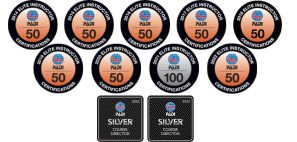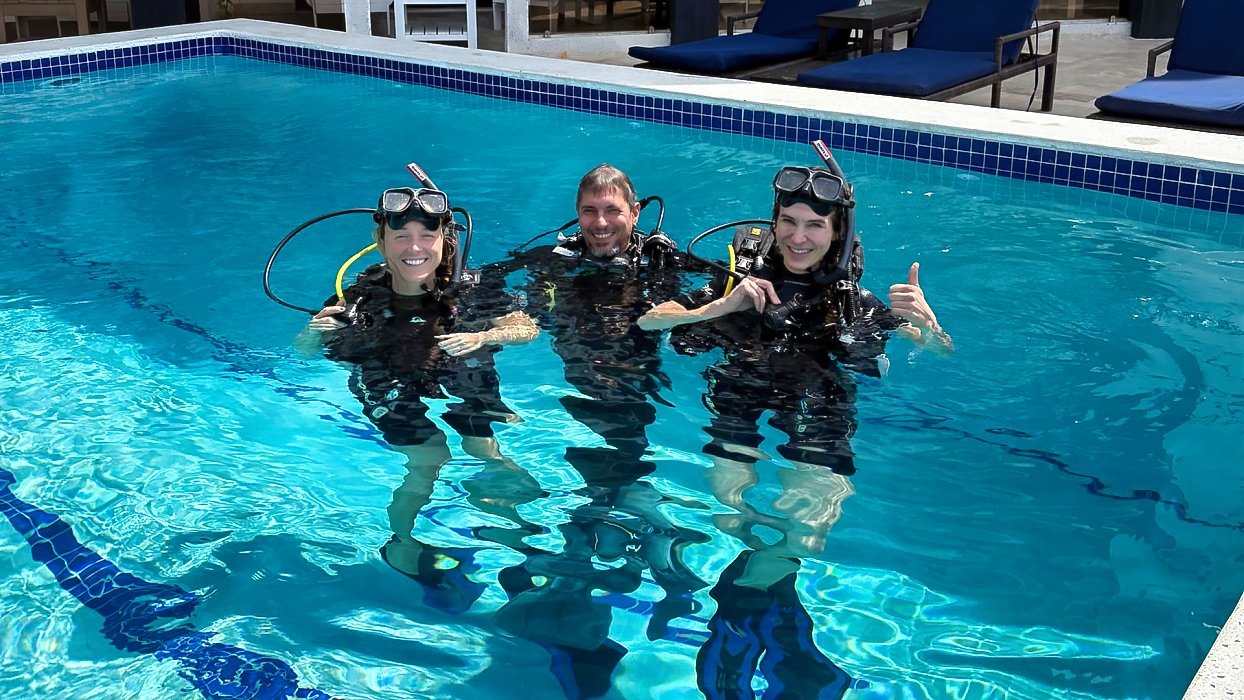
Why Dive Center Operations Make or Break Your Business
Effective dive center operations are the foundation of a profitable and scalable dive business. Without them, you’re stuck reacting to issues instead of leading your team proactively. Missed follow-ups, poor upselling, and confused staff aren’t personality problems. They are process problems.
That’s why the most successful dive shops don’t just rely on talent. Instead, they build structure.
Why Meetings Are the Core of Operational Success
At the heart of that structure are four recurring meetings that create alignment, accountability and forward momentum. These aren’t time-wasters. When done right, they become your most valuable operational tool.
In this post, I’ll walk you through the daily, weekly, monthly and quarterly meetings we use to drive team performance and boost sales—so you can apply them in your own dive center with immediate results.
What Does Great Dive Center Operations Actually Look Like?
However, strong operations are more than clean gear and full boats. They’re about creating an internal rhythm where every staff member knows their goals, touchpoints and opportunities. At the heart of this rhythm are your meetings.
To begin, let’s start with the smallest but most impactful one.
How Should You Run Daily Dive Center Meetings?
This is your five-minute standing check-in, run before the first boat leaves.
It should include:
- Who’s diving today and who might walk in for courses
- Special notes on each guest [example: “Alice hasn’t chosen a specialty yet”]
- Quick checks on boat, gear or schedule blockers
- One or two sales goals for the day
We write this out on a whiteboard or digital screen. The entire team can see diver names, bookings, course status and upsell potential.
Even though daily check-ins might sound basic, they’ve made our dive center operations smoother, more profitable and far less reactive.
What Should Weekly Tactical Meetings Focus On?
This 45-minute meeting keeps your team accountable and focused on performance. Use it to:
- Review booking numbers and referral sources
- Track conversions from walk-ins, online leads and email inquiries
- Identify patterns in upsells, certifications or gear rentals
- Set one weekly improvement target [example: “Follow up on every DSD within 24 hours”]
In addition, use your CRM or spreadsheet to bring real data. Then ask, “Where are we dropping the ball?” and “What process needs adjusting?” If you’re not already tracking this, our sales consulting for dive centers can help build a system that fits your team.

How Does a Monthly Strategy Meeting Impact Dive Center Growth?
This is your zoom-out meeting. Block off 2–3 hours each month to:
- Analyze diver behavior and top-selling packages
- Review where leads are coming from—Facebook, walk-ins, or referrals
- Rework one system that’s underperforming [pricing, follow-ups, or CRM logic]
Instead of solving five problems in one sitting, focus on one that matters. You’re identifying one area where improved dive center operations can unlock significant revenue.
Therefore, if you’re unsure where to start, consider a session with our dive business consulting team to audit your current system and build from there.
Why Hold a Quarterly Offsite With Your Dive Team?
Get out of the shop and look at the big picture. A quarterly offsite is about:
- Reviewing the last quarter’s revenue, complaints and standout moments
- Identifying who on your team is ready for more responsibility
- Planning new campaigns [like referral programs, upsell flows, or package bundles]
Moreover, we ask team members to present their personal KPIs and ideas. It creates buy-in and reveals future leaders. If you’re grooming one of your instructors for management, now’s the time to pair them with instructor career consulting.

Improve Dive Center Operations With the Right Rhythm
You don’t need more meetings. You need better ones, with clear intent and measurable results.
- Daily check-ins help prevent missed opportunities and chaos
- Weekly tacticals track performance and accountability
- Monthly strategy meetings allow you to adapt and grow
- Quarterly offsites foster leadership and long-term thinking
What to Do Next if You Want Better Sales Results
Want to run a tighter ship and sell smarter? Start with your meeting rhythm. Then back it with systems, training and follow-up that actually stick.
Looking for inspiration on how to keep meetings tight and focused? This guide on good meeting practices offers valuable tactics that work across industries—including ours.
How do you currently structure your meetings? Or are you just winging it? Share your experience in the comments—I’d love to hear how your team handles operations.
Built for Dive Shop Owners
Stop Losing Sales. Start Leading Smarter.
If your team isn’t converting, following up or upselling consistently, you’re leaving money on the table.
Book your free call and I’ll show you exactly how to fix it.



